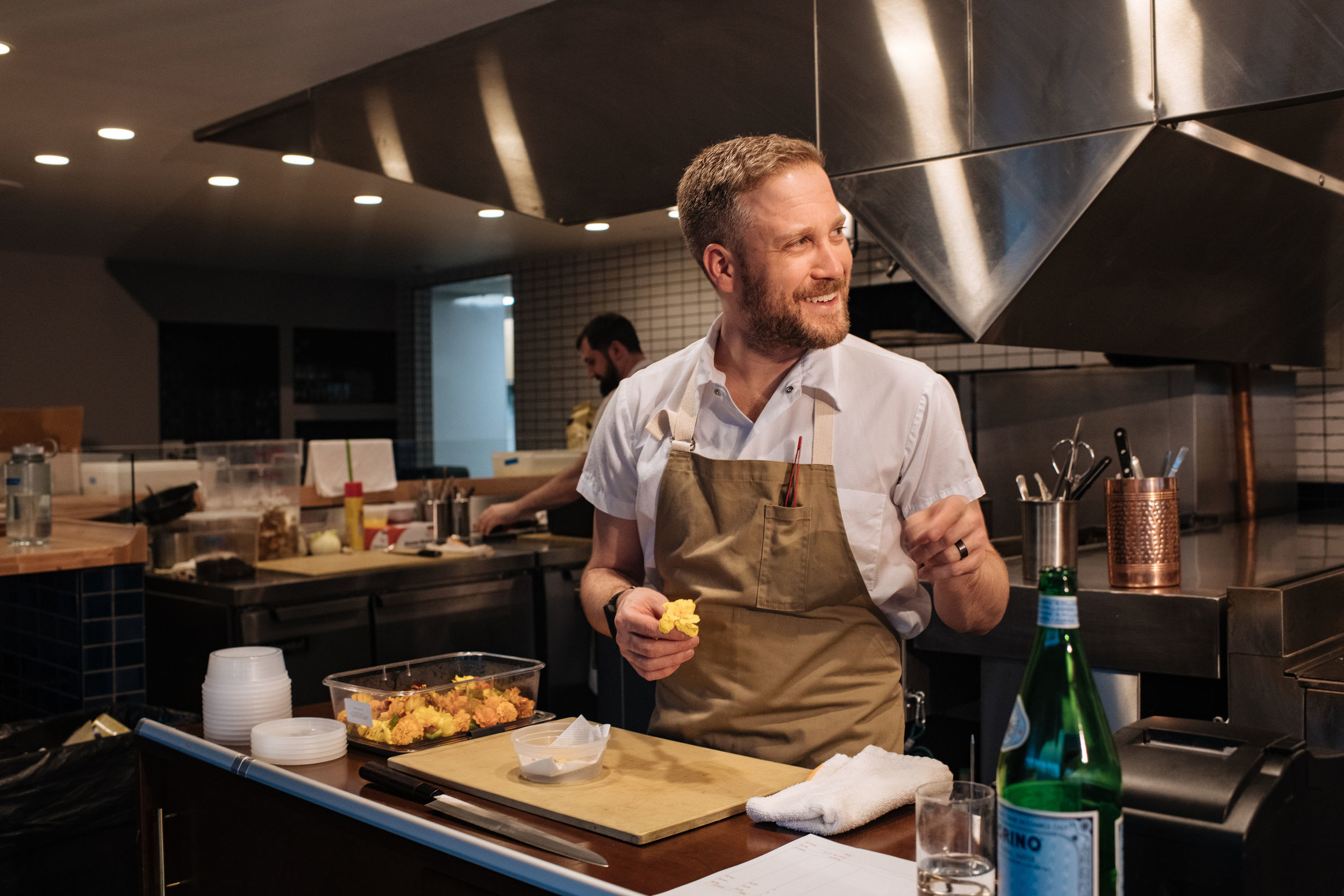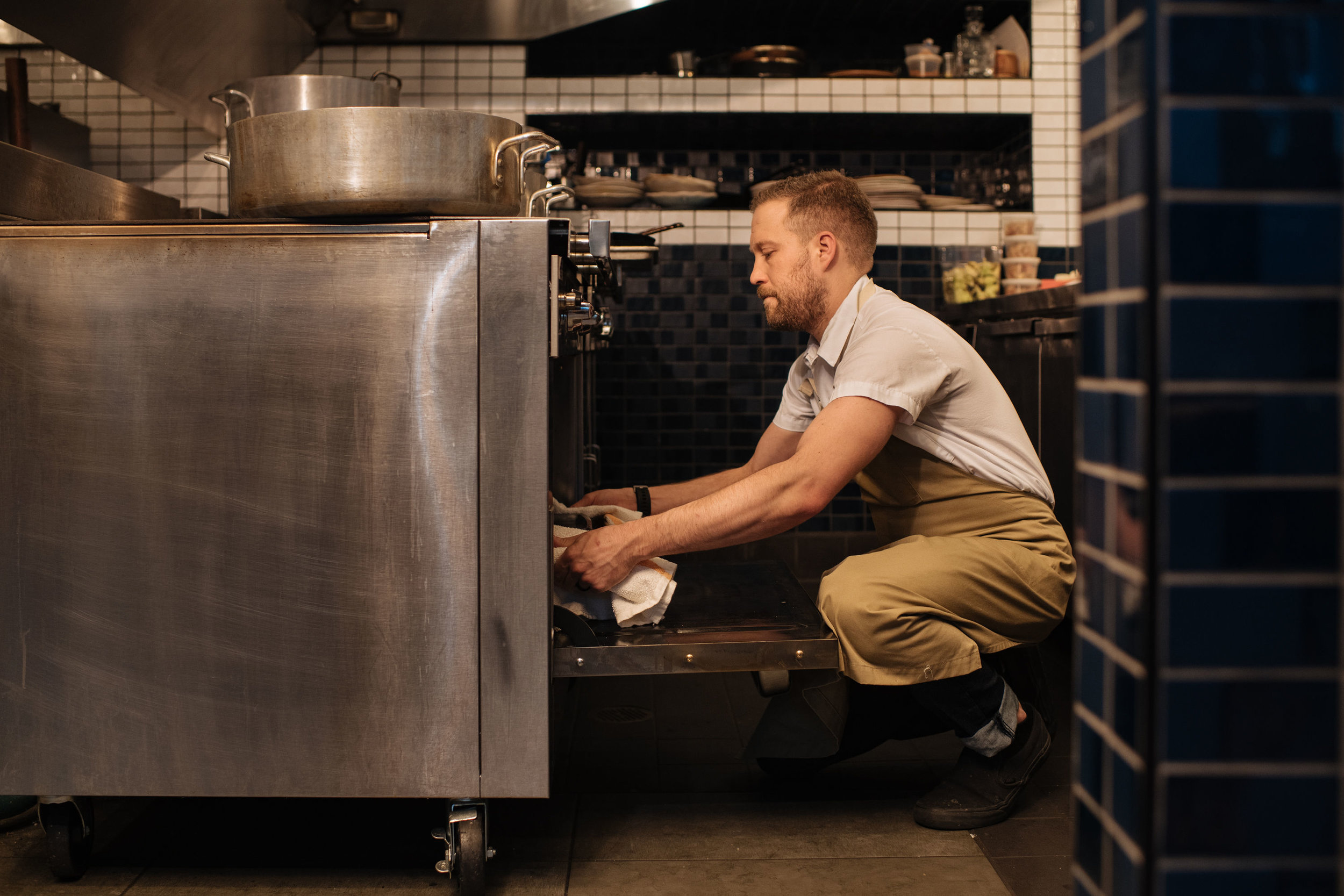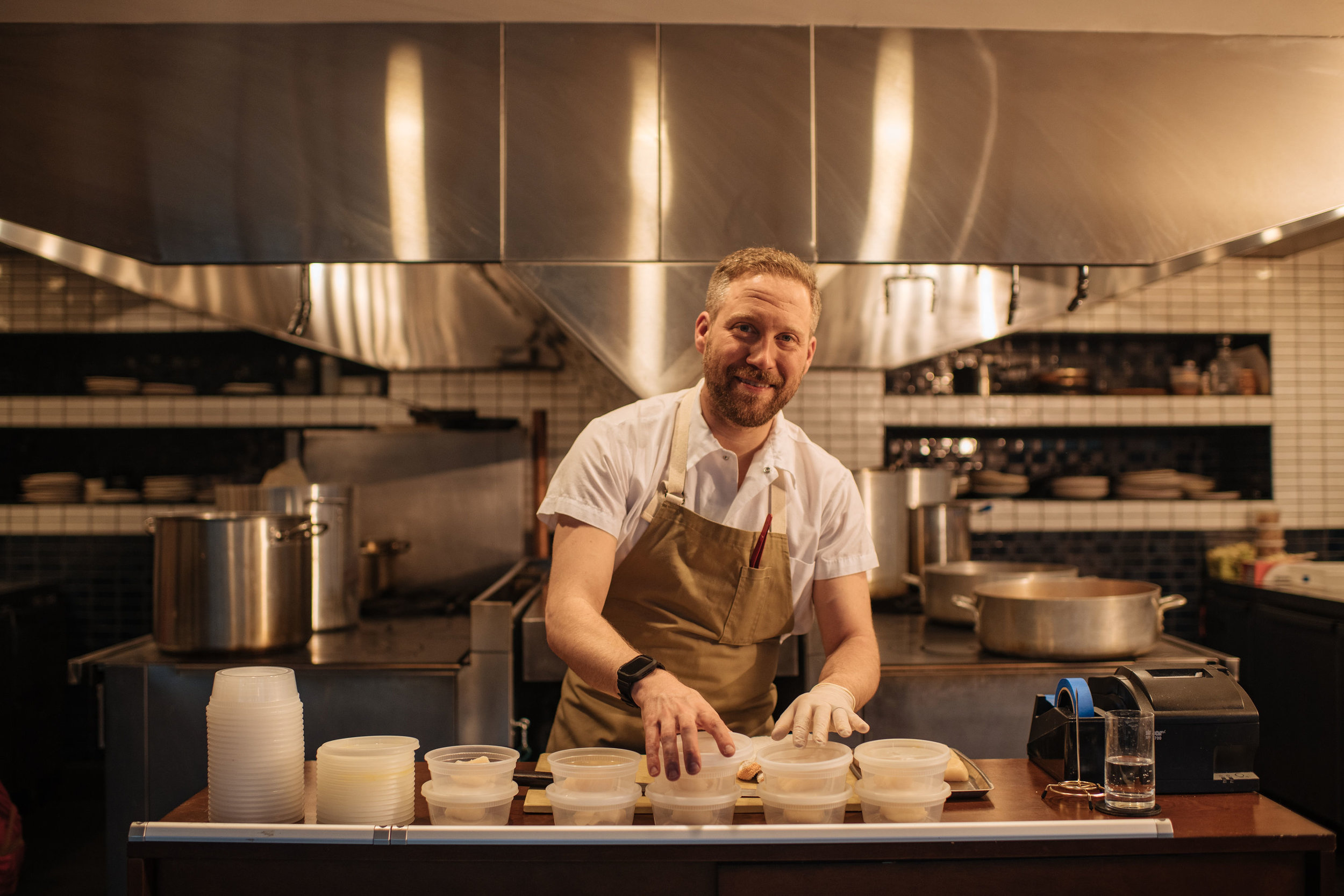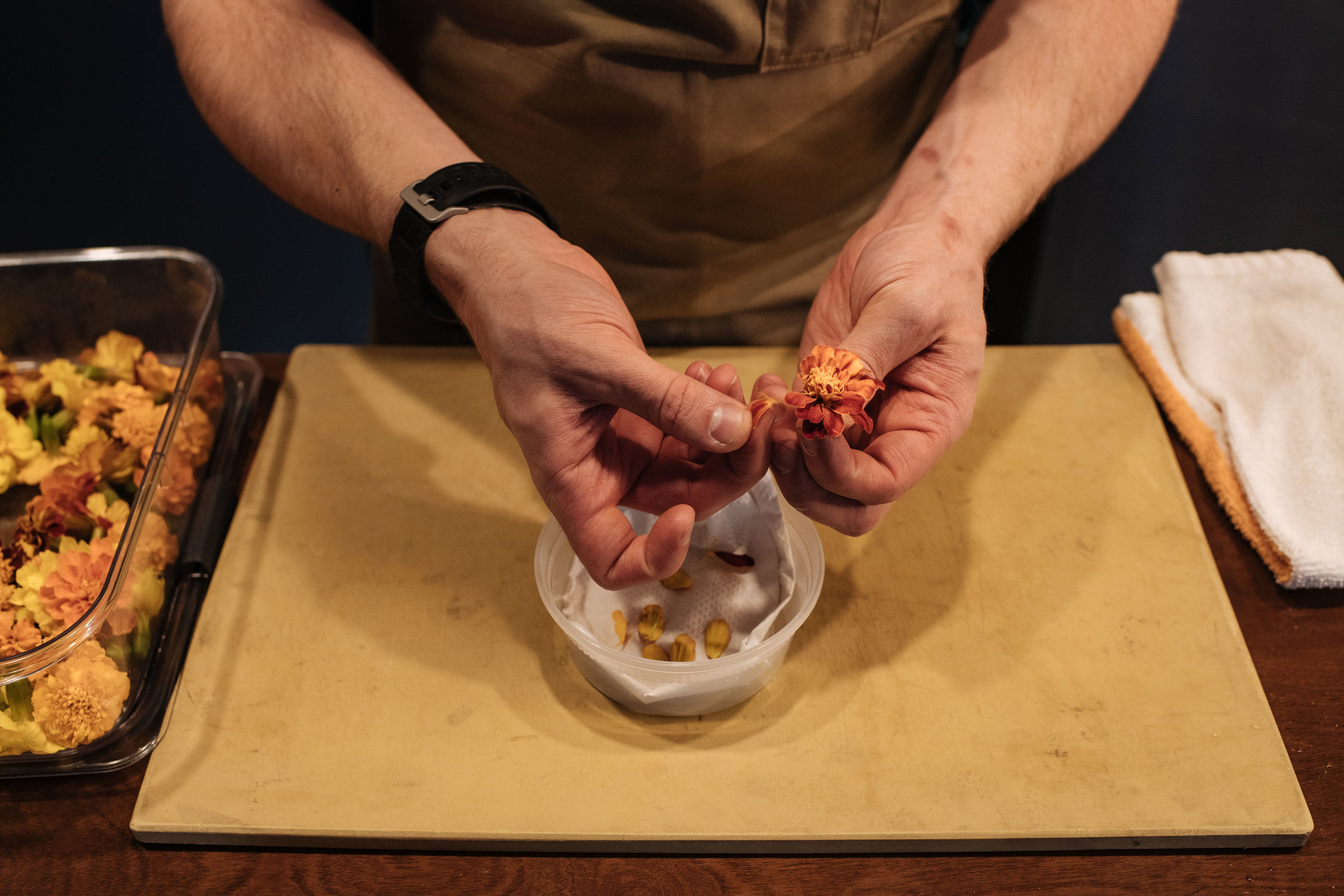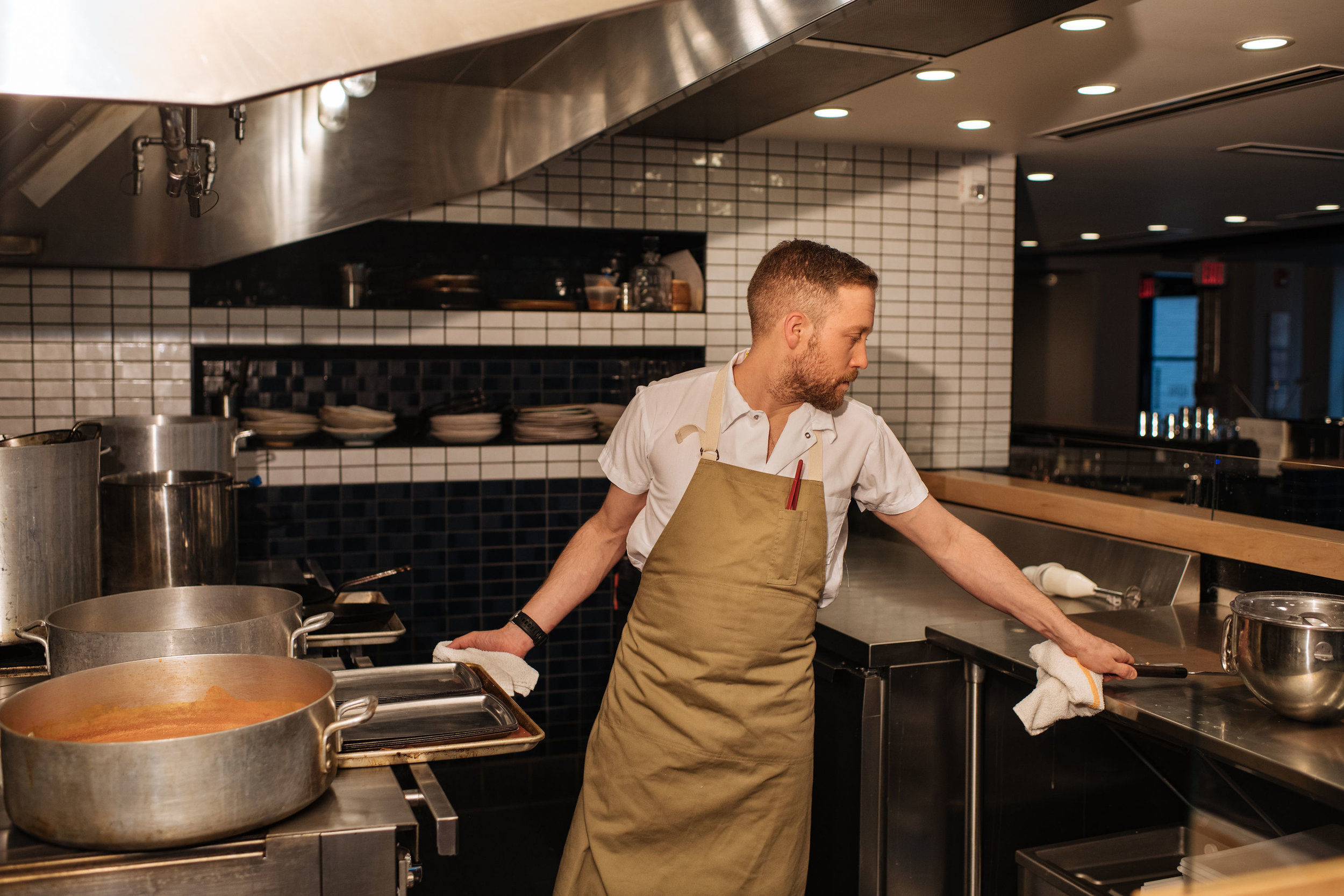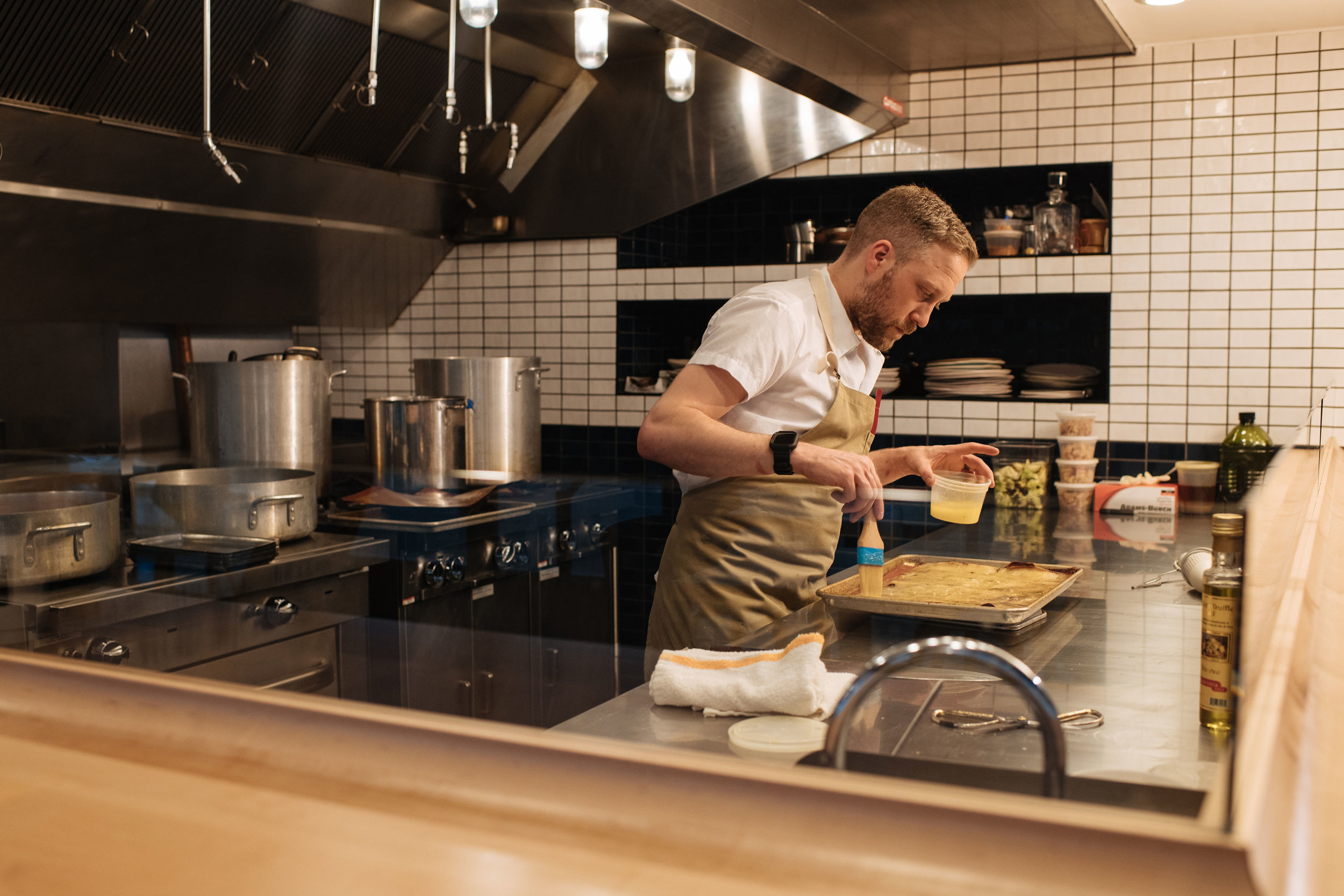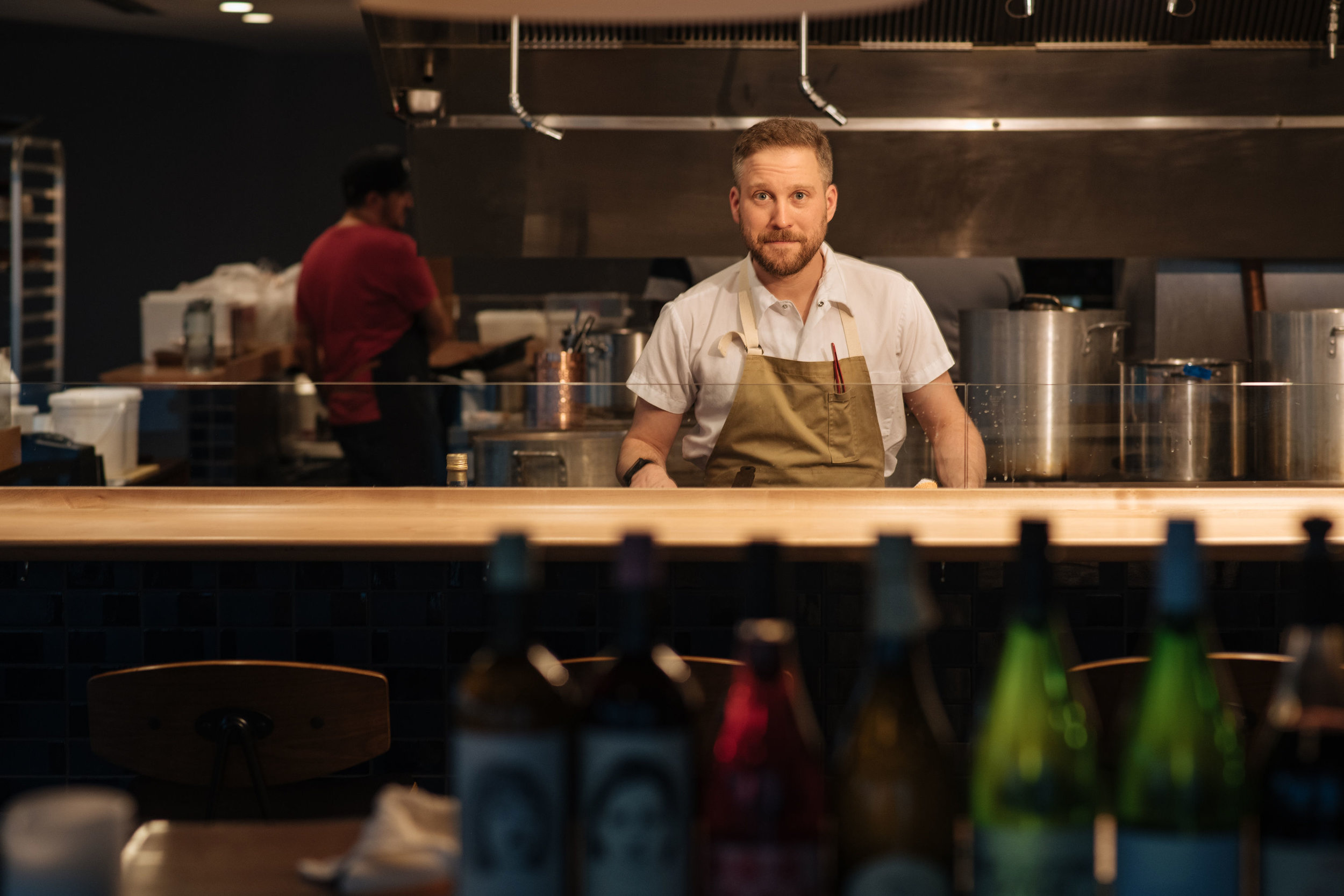‘I Can’t Imagine Opening a Restaurant Anywhere Else’
Johnny Spero welcomed two babies into the world, six days apart.
In mid-October—less than one week after opening his own restaurant, Reverie, in Georgetown—the chef’s wife gave birth to a baby girl named Fiona.
‘We had just gone through our friends and family opening over the weekend. That Monday night I made my wife fried chicken, and I think I put too much hot sauce in it and her water broke at midnight. Fiona was born on Tuesday and I was back in the restaurant Thursday.’
It’s been a whirlwind year, preceded by both happenstance and hard work.
Johnny got his first taste of the restaurant industry at 15—forced to work as a busboy if he wanted his driver’s license. The Baltimore County native didn’t have the attention span for school, but found his tribe in the kitchen.
‘I always found myself hanging out there. It really spoke to me. When I was younger, I liked to hang out and party and drink, and I was into skateboarding. Kitchens attracted that kind of lifestyle. It was OK to be that kind of person. I was attracted to the restaurant scene for the very wrong reasons and the things I don’t believe in now.’
By the time he was 18, Johnny’s parents gave him an ultimatum: Go to college, or find a new life plan. They wouldn’t allow him to pursue a career without a piece of paper representing his commitment.
Johnny enrolled in culinary school to please his parents, but says it wasn’t until two years later that he embraced his true potential.
‘I really kind of dove into what it was to be a chef. I’d always done really well in art and I thought about a job in digital media, and then I found a way that food didn’t just have to be a steak on a plate. It’s still very much a craft but there’s a lot of artistic elements that go with it. For anything to take my attention must be good, and it was that.’
He spent days, weeks, and months with like-minded chefs, working in their kitchens and gaining the life experience he couldn’t attain in school.
‘Working in a kitchen is about touching. That’s the only way you know how to clean a venison saddle. You need to physically touch the thing. I was in small, intimate, high-end kitchens where I was responsible for a lot. It was like a database of flavor and technique.’
Johnny eventually outgrew the Baltimore dining scene, but didn’t have the money to move to New York City.
Former French Laundry chef Eric Ziebold had recently opened the critically acclaimed CityZen at the Mandarin Oriental Washington. A huge fan of his work, Johnny decided to move to DC and follow suit.
‘This was 2007, before that whole new brigade of cooks and chefs made it to the city. I looked at the top 100 restaurants, and then I said I’m going to set my eyes on the top 10. I wanted to jump in to some of the best places in DC and see if I could make it, and then maybe go elsewhere.’
After stints at Farrah Olivia and Komi, followed by a restaurant of his own that closed after five months, Johnny made a name for himself as head chef at Jose Andres’ minibar. Then, at the height of his success, he moved to San Sebastian, Spain, to work as an unpaid apprentice at a Michelin two-star restaurant.
Johnny spent a year in Spain, and considered staying indefinitely. But as he began toying with the idea of opening his own restaurant again, he couldn’t imagine doing it anywhere else than DC.
‘I had this moment of, I’m 30, and I’d be starting my life over in Spain. The more times I left DC, the more I fell in love with it. I knew farmers, I knew cooks, I knew DC. Why would I leave what I’ve unintentionally built for the past decade? It would be a wasted opportunity.’
By the time Johnny returned to DC, everyone restaurateur was opening in Shaw. He thought the market was oversaturated, and turned his attention to Georgetown—a surprising choice to many.
‘It was the beginning of a resurgence of life in Georgetown, and I figured I’d be one of the first to see how it goes. We’re not completely by ourselves and there are other long-standing restaurants, so it’s cool to be part of an area where there is a culinary history and we’re not pushing anyone out—we’re adding to that story.’
Yet another surprising choice, Johnny ditched M Street for an unmarked cobblestone alleyway off of Grace Street. He says the location creates an experience before you even get to the front door, attracting people who want to be there.
‘Georgetown is one of the most iconic neighborhoods in DC. It’s got soul, it’s got character, and it’s got a story. There’s something beautiful about being near the canal and waterfront, and then going down the alleyway. It’s cool to be tucked away. Reverie means being pleasantly lost in your own thoughts, and when you get inside, you could be anywhere. We’re not banking on waterfront views, we’re banking on having an awesome experience.’
Reverie’s approachable, open kitchen lends itself to that, with regulars requesting a counter seat near their favorite chef. Johnny says it also gives his cooks a voice, creating an incubator space with room to grow. Their name may not be on the restaurant, but they play a crucial role in its success.
While the opening kept Johnny busy, his daughter kept him honest. Johnny says her birth changed the dynamic of the kitchen and forced him to adopt a new work-life balance that he preaches to the staff. No one works 90 hours a week, and everyone gets two days in a row off.
‘When Fiona was born, it was like a flipped switch. I don’t want anyone living here. I want people to be with their friends and families, and enjoy their lives. None of them need to sacrifice to make my dream come true. This is me, so if someone’s going to work 16 hours a day, it’s gonna be me. But that being said, it’s made me realize I should have a schedule where I can spend time with my wife and daughter. I should be able to go home on a Monday and cook them dinner. No one should live and die by this restaurant.’
The pressure to provide is the greatest motivator for Johnny. Fiona made him think about the bigger picture—namely, how he can the last the length of his lease to take care of his family.
As Reverie nears its six-month anniversary, Johnny is happy, but never satisfied.
‘I was the little shit who just wanted to work in kitchens. It’s all I’ve ever known and wanted to do, and the one thing I’ve been able to focus on. But if I ever feel we’re in a good place, I probably need someone to come in and kick my ass.’
